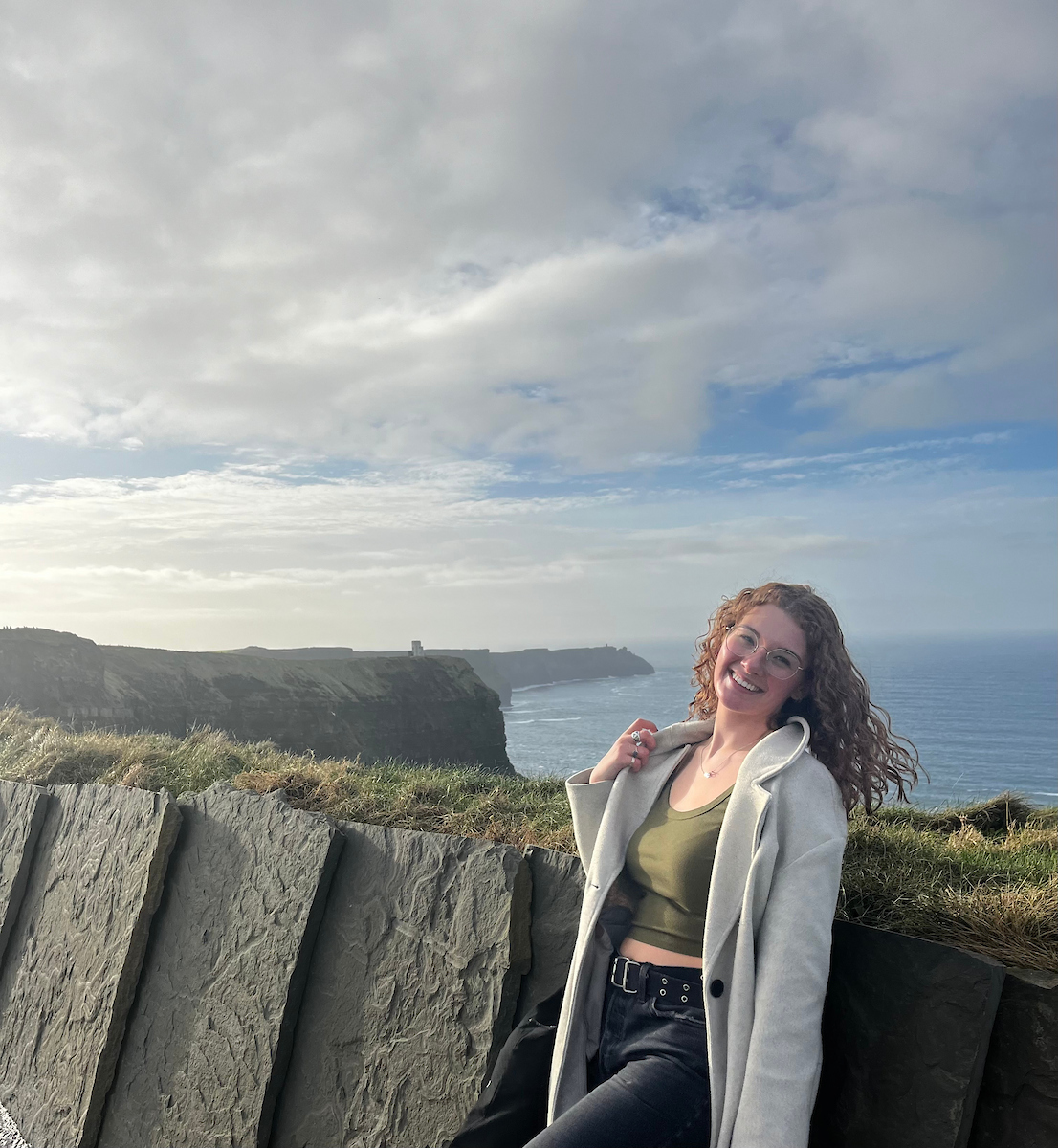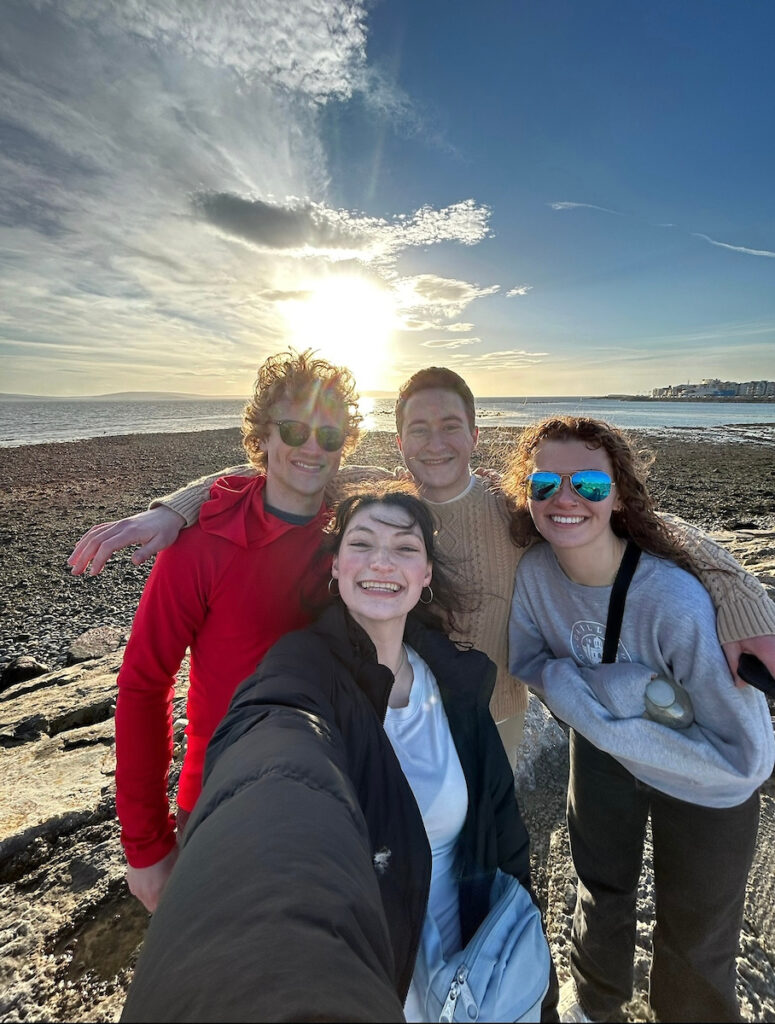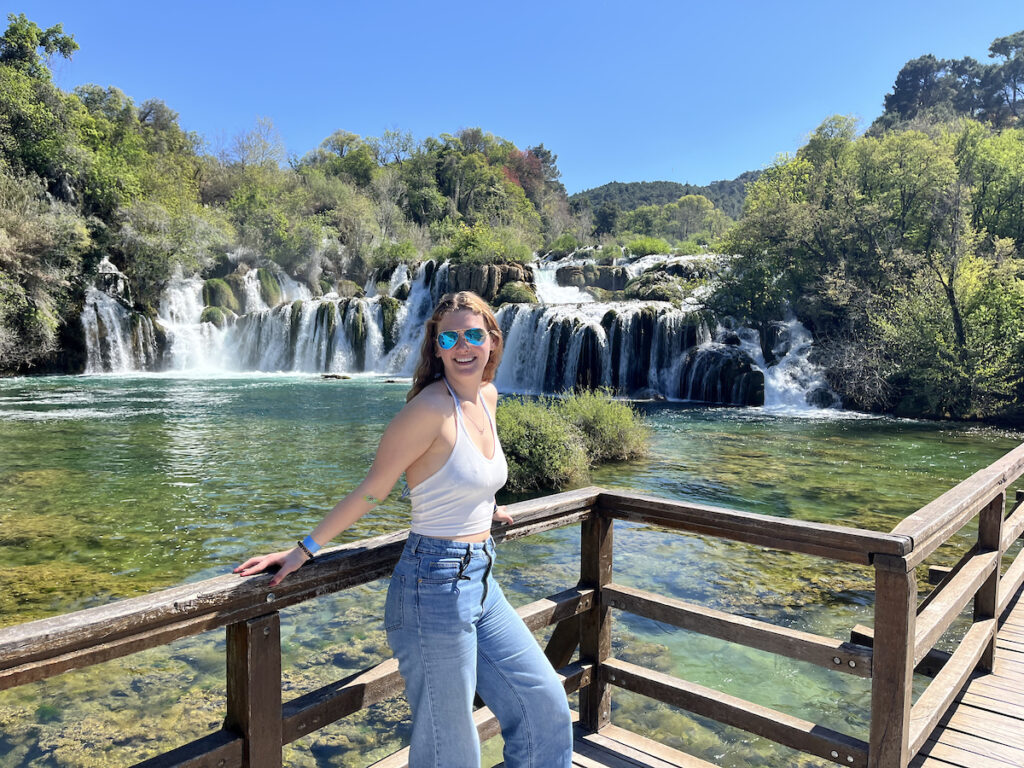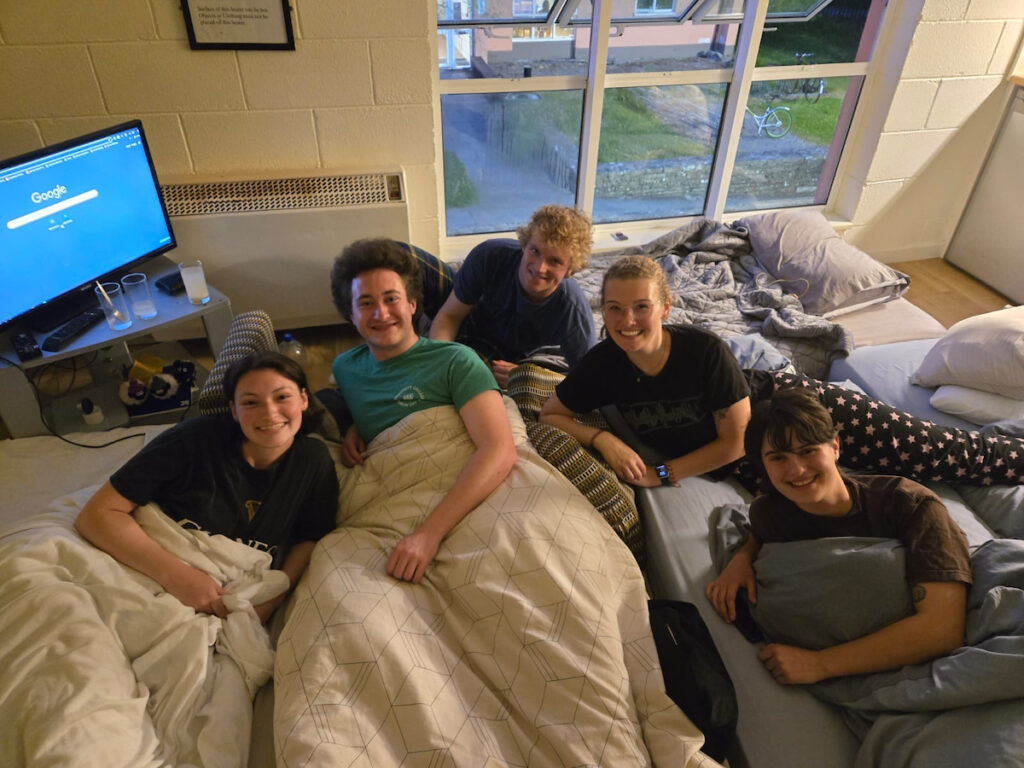How the Challenges of Study Abroad Lead to Growth and Strength


Studying abroad in Galway, Ireland, was my second time living internationally. The first time, I was fresh out of high school and became an au pair, a live-in nanny, in Rennes, France, for a year. If there is one thing I learned from both of my experiences abroad, it’s that growth comes with discomfort. Most of the time, you don’t notice the changes until you look back months or years later. But sometimes, you can feel the growing pains from situations that push your mental and physical comfort zones.
The first ache is typically in the heart. It hits once you’ve left home, usually between a week and a month into the process: a pit in the stomach, a lump in the throat, a cold sweat, and some nausea. Sometimes it’s sparked by something: a call from Mom, a nasty case of the flu, a favorite holiday passing by. Your bedroom abroad suddenly feels so large; the silence echoes off the walls. All you want is your family. Homesickness can be incredibly painful.
Homesickness fades
I thought I was immune the second time around, that I knew what to expect and could outrun the longing for home. But a week into my semester in Galway, I was sitting alone in my room, crying and wishing I had stayed home. I could feel my heart being pulled back to my support system in the States because I didn’t have anything anchoring me to Ireland yet. While I couldn’t avoid homesickness, it was shorter the second time. I knew what to expect. I had other friends studying across Europe, and my roommates helped keep the deafening silence at bay. After a few days, a few branches of connections, and I started to feel the pull of home less and less.
The second type of strain is mental, when new situations test you in ways you didn’t know were possible. I considered myself independent before studying abroad. But I have taken it to a new level because of my new experiences. While IFSA gave me a community of other students from the United States, they were strangers at the beginning. It is hard to feel like you have a support system when you barely know their names. So comes the beginning of self-reliance. Figuring out classes, weekly schedules, and navigating your host city becomes a new priority. This sent me, and many others, back to the same wide-eyed state as college freshmen: scared of everything while trying to pretend like you aren’t. It’s always scary, even if you’ve been through it before, because it’s new.

Taking the leap
Then, you get a wave of bravery and click the “pay now” button for your first trip. You overcome the third obstacle in personal growth. Whether it’s a plane ticket, a train pass, or a bus seat, it will always push a burst of adrenaline. This was a bit easier the second time around. I felt more at ease with the European transit systems and capable. The first time, though, it was terrifying. I had to muster a bout of courage and dive into the deep end. I watched my friends go through the anxiety and anticipation of solo travel when I went abroad. I sat with my roommate and helped her book the train tickets and hostel for a weekend in Belfast, Ireland. It involved many reassurances that she could do it. By the time we left Ireland, all of my friends and roommates were jetting off on the weekends to explore Ireland and other European states. You learn how to plan, be flexible, and rely on yourself when everything goes wrong. I was so proud of everyone because traveling is incredible, but it can be a big headache when planes are delayed, rainstorms cancel plans, or illness creeps in.
I was all too familiar with plans getting foiled by illness, the fourth of the growing pains. During my first big solo trip when I was 19, I got severe food poisoning in Vienna, Austria. After 48 hours of living in a hostel bathroom, dehydration sent me to the hospital. I was poked and prodded in a shared hospital room. I was wheeled to various buildings to be seen by specialists, have scans, or have another blood taken and tested. Most doctors spoke some English, but in a state of half-consciousness, all I understood was that I was not dying; it just felt like I was. After a long night, I was well enough to be placed on a plane back to my host family in France.

On my big solo trip during study abroad, I assumed that would never happen again. I decided to start my trip to Vienna again, as I didn’t get to see much of the city the first time. I spent the day exploring the city with my best friend, and that night, spiked a fever. I could only laugh at the irony. I continued, and by the time I got to Split, Croatia, I was sent to the hospital again, with mono and strep throat. More IV fluids and a prescription for antibiotics later, and I was hiking through Krka National Park the next day. I learned two things from these experiences: I can handle a lot of discomfort and push through when I need to, and I should not go to Vienna anymore.
Leaving people and places you’ve come to love
The final trial of discomfort creeps up on you. It is much like the first: a knot in the stomach, a lump in your throat, a crack in the voice. A dream of being back at home shakes you awake, and it dawns on you that the last five or six months are coming to an end. You go on your final trip, make your last grocery run, and plan one more outing with your friends. You take pictures, hoping to slow down time. It hit hard both times I was abroad. Walking my roommate to the bus station felt like having the wind knocked out of me. We both said we weren’t going to cry. But tears fell, and we laughed at ourselves and waved goodbye. On my final night, I cried like I did the first week. But this time, it was because there were no more nights with the people I had come to love. So I hugged my roommates and lay on their floors until we all went to bed.

My other three roommates left a few hours before I did. The apartment was once again empty, but there were echoes of memories and laughter: my roommates cooking in the kitchen, birthday balloons being set up in the hallways, our apartment sleepover on the living room floor. A bit of us all was still in the apartment when I turned out the lights and closed the door for the final time. I felt the aches on the plane home and when I woke up in my childhood bedroom. But I learned how lucky I was to meet the people I did, have roommates I loved so dearly, and experience all I did. I learned how deeply studying abroad impacted me and just how much it made me want to continue traveling and exploring after my university years.
Studying abroad is challenging. There are rainy days, hostels that smell like feet, and times you want your mom. You will be challenged in ways you didn’t know were possible. Then, you learn that you are right where you’re meant to be, with the people you’re meant to be with, and you find signs that you’re on the right path. You take pictures, you see the growth: in your style changes, in the smile on your face, in the brightness of your eyes. Then you look back a few years later and realize how much of an impact living and traveling abroad has had on you. You’ll have the urge to do it again. And if you’re lucky, an opportunity will arise that has you taking that deep breath and pressing the “pay now” button for your next great adventure.
Hannah K. | University of Wisconsin, Madison | University of Galway Partnership program | Spring 2025